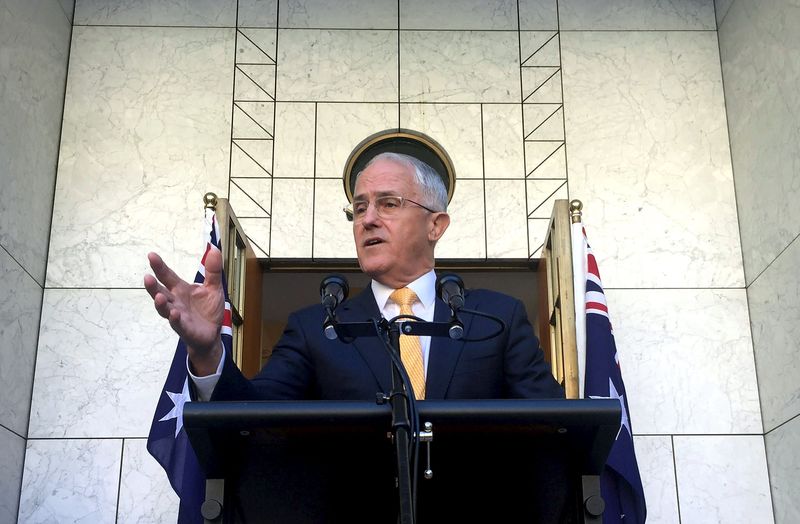(Drops Nauru from headline)
By Colin Packham
CANBERRA, Oct 10 (Reuters) - Australia is trying to move asylum seekers held in one of its two remote Pacific detention centres to the second camp, a notice seen by Reuters shows, as Canberra seeks a way to close one down.
Men held on Papua New Guinea's Manus Island can move to the centre on the tiny island nation of Nauru if they have been awarded refugee status and are being considered for U.S. resettlement, the letter posted in the camp and seen by Reuters shows.
"Refugees in the United States process can now apply for transfer to Nauru," the letter read. The Manus camp only holds men.
The letter marks Australia's latest attempt to empty the Manus centre, which is scheduled to close on Oct. 31.
Under Canberra's hardline immigration policy, asylum seekers intercepted at sea trying to reach Australia are sent for processing at the Manus and Nauru camps. They are told they will never be settled in Australia.
More than 20 men left to be resettled in the United States last month, the first part of a refugee swap between the Washington and Canberra which U.S. President Donald Trump has branded a "dumb deal".
But nearly 800 remain in the Manus camp and nearly all are refusing to move to a nearby transit centre, citing fears for their safety. refugees have not left the detention centre despite the government's efforts to push them out in the past few months," said Behrouz Boochani, a Kurdish journalist held on Manus.
Many have been awarded refugee status and are eligible for U.S resettlement under the deal Australia secured with former U.S. president Barack Obama late last year.
The United States will resettle up to 1,250 asylum seekers held on PNG and Nauru. In exchange, Australia agreed to take several dozen Central American refugees.
Australia will begin resettling several dozen Central American refugees within weeks.
Any transfer will further strain conditions on Nauru, where more than 1,200 men, women and children have been for four years in a camp widely criticised by the United Nations and human rights groups for abuses, including sexual abuse, and self-harming. (Editing by Nick Macfie)
